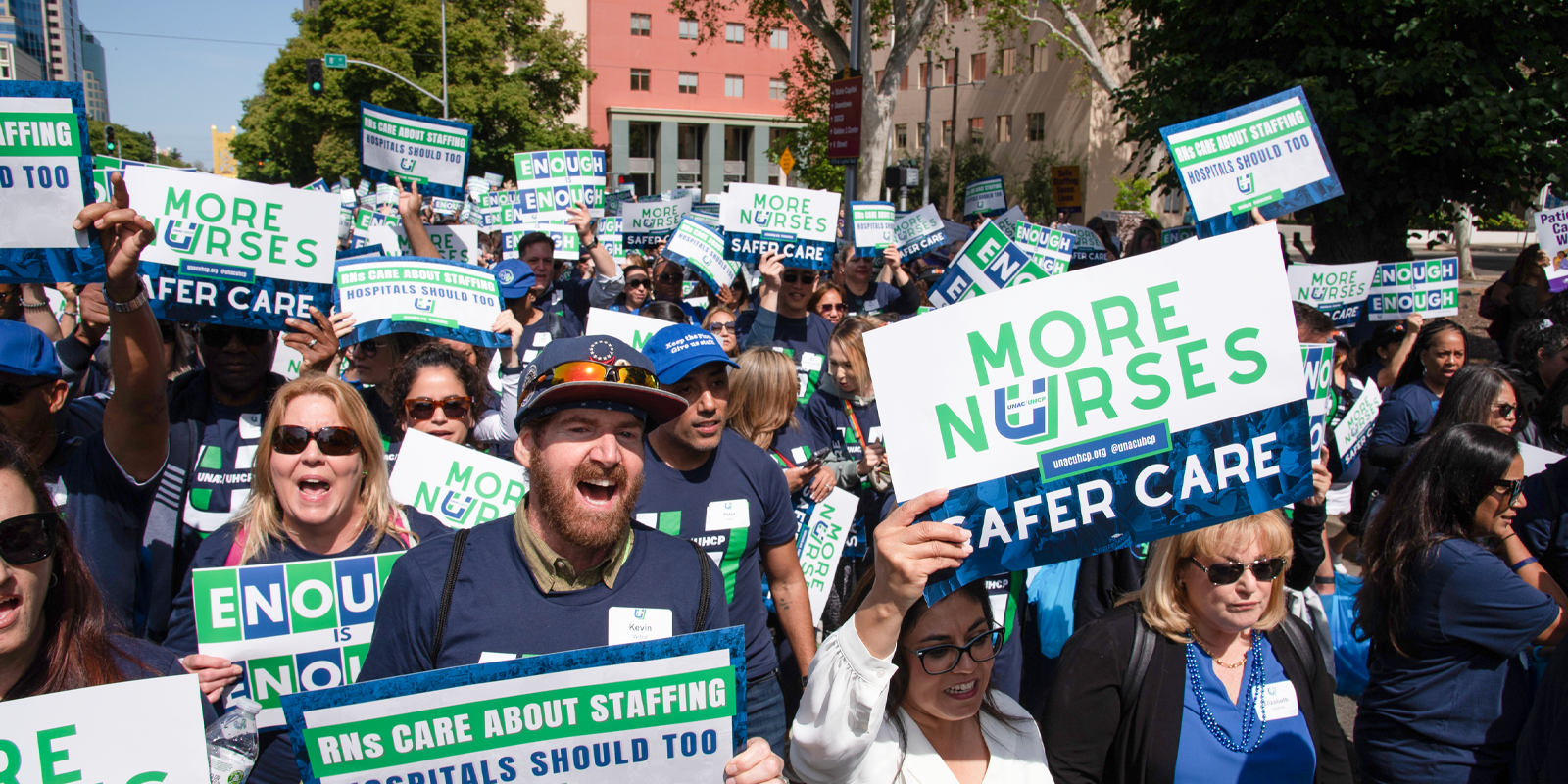“For the sake of nurses at the bedside and the patients we care for, we must boost the ranks of new nurses and enforce our leading California nurse-to-patient ratios,” said UNAC/UHCP President Charmaine Morales, RN.
According to the union’s research, the U.S. health care system will be short a million nurses by 2030 unless policymakers act now. One-third of the 3 million RNs in the country will leave the bedside in the coming decade, the research shows. Nurses are retiring or quitting in record numbers due to burnout, exhaustion and trauma. Meanwhile, nursing programs don’t have enough slots for qualified applicants.
Three bills sponsored by UNAC/UHCP are headed for votes in the California State Assembly. Union members visited their lawmakers to push those bills and recommend other solutions:
- A $500 million state investmentfrom 2025 to 2030 for California’s 77 community college nursing schools. That will double the state’s capacity to graduate new nurses in five years, according to UNAC/UHCP.
- Assembly Bill 1695 seeks to open the nursing pipeline by creating a high-school-level Nursing 101 course with automatic admission toward an associate degree in nursing.
- Nursing students need clinical placement hours to graduate. Assembly Bill 1577 would compel hospitals to provide more clinical placements.
- Assembly Bill 1063 would bring transparency, accountability, and RN input into the California Department of Public Health (CDPH) enforcement of nurse staffing ratios.
California is not alone in experiencing a severe shortage of nurses – and nursing is not the only profession facing this issue. A number of public service professions nationwide are in the same boat. That’s why AFSCME members launched Staff the Front Lines, an initiative to address these shortages in nursing and other professions on the front lines.
AFSCME members across the country are working to recruit professionals to fill these jobs, bringing relief to front-line workers and making sure communities continue to receive the quality public services they need and deserve.
